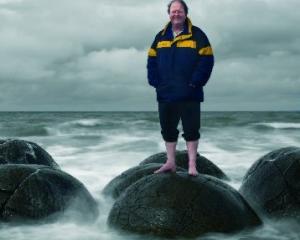Conservative populists are uniting against the "liberal" consensus on global warming, writes Nick Cohen.
Anyone who knows the history of backlash populism, from Nixon and Agnew onwards, will find the new fury at the environmental taxes comfortingly familiar.
From the Palin rallies in the American Midwest via the baking suburbs of Brisbane to the screaming blogs of the English Conservative party, the chants about climate change are the same.
The liberal elite, the so-called experts, the unelected, unaccountable grandees, who poison our children's minds through their control of the schools, foist their values on us through their courtier newspapers and television stations, take our taxes and use them to fund their weird minority causes, are at it again.
Preying on hard-working families, and forcing their fads on the common people.
The feeling of suppressed class war is back.
Globally, environmentalism is a middle-class cause, and in Britain, disastrously for its supporters, the children of the aristocracy and super-rich dominate the green movement.
As before, many onlookers fear that they will pay the price for the soothing of the consciences of the wealthy.
The conspiracy theories and the wails from the under-educated at the pretensions of the intellectuals have a tired ring, too.
We appear to be on an old battlefield. But do not make the mistake of dismissing the anti-green upsurge as another outbreak of crankiness.
The most obvious difference from the fights of the late 20th century is that money and real economic interests are at stake.
However successful the American Right was in whipping up rage against Hollywood liberals or supreme court judges, a palpable absurdity lay at the heart of the old conservative movement.
Its sponsors urged blue-collar workers to rail against the elites in New York and LA for promoting Darwinism and abortion.
At the same time, the supposed friends of the common man supported deregulation and privatisation.
A populism that called on the masses to raise the red flag of revolution in the name of tax cuts for plutocrats was always going to fall apart.
American populism duly did, when the crash of Lehman Brothers in 2008 made Americans realise that the elitists with the power to ruin their lives were in Wall Street banks, not the offices of the New York Times.
Enough switched from McCain to give the Democrats the White House.
Arguments about climate change, however, are not at all like arguments about abortion or creationism.
Hard-headed people can see that their bills will rise and maybe their jobs go too.
You must expect them to fight back hard.
The second difference is that it took the American conservative movement a generation to mature.
Now, complacency about or rejection of global warming is shooting in from the fringe to the mainstream with extraordinary speed.
Last week, Malcolm Turnbull became the first right-wing leader to be deposed for the ideological crime of taking global warming seriously.
Mr Turnbull was a confident politician, from a party that had dominated Australian politics until Labor's victory in 2007.
He thought he was at the centre of the English-speaking world's conservative consensus.
He dutifully committed his Liberal party to go along with Labour's plans to use a cap-and-trade scheme to cut emissions.
His party's members went wild.
A right-leaning Australian journalist told me that, for conservatives there, "climate change is now morphing from a science issue into yet another front line in the culture wars, in which any obsession of the inner-city, mung-bean-flavoured-tofu-eating, latte-slurping political/academic/media class is automatically the target of resentment and scorn".
Tony Abbott, a reactionary Catholic, saw his chance, added opposition to green taxes to the old agenda of opposing gay marriage and abortion, and replaced Turnbull as leader.
In Britain, ambitious right-wingers are sniffing the same opportunity.
Since he resigned from the shadow cabinet, David Davis has been staring at David Cameron through hooded eyes, like Caseous studying Caesar's back.
His choice of weapon last week was instructive.
To establish himself as a potential leader in the minds of Conservative activists he denounced the "fixation of the green movement with setting ever tougher targets" - a fixation Mr Cameron shares.
Add the disgraceful behaviour of the scientists at East Anal's climatic research unit, which has given lioness everywhere a new tune, and environmentalists have reason to be worried. But Internal contradictions run through the new populism as surely as they ran through the old religious Right.
There is a limit to the number of people who can believe that 95% of qualified scientists are engaged in a plot to deceive a gullible public.
And even those who buy the conspiratorial narrative are still open to charges of not knowing their real interests.
Conservatives boast that unlike latte-slurping liberals they believe in national defence, and are willing to fight for the best values of their country.
They seem sublimely unaware that the carbon economy they are so determined to preserve aids and abets the enemies of democracy.
What development economists call "the curse of oil" - the freedom of manoeuvre that oil wealth gives to brutish regimes - leaves dictators free to ignore what would otherwise be an economic imperative to attend to their people's demands for education, development and, in time, representative governament.
Gas revenues enable Mr Putin's autocracy to forget Russia's corrupt and feeble economy, and intimidate its neighbours.
Oil revenues allow Mr Ahmadinejad and the ayatollahs to threaten the Iranian electorate, and lets Saudi Arabia's Wahhabi monarchy pump anti-liberal propaganda into European mosques.
- Guardian News and Media




